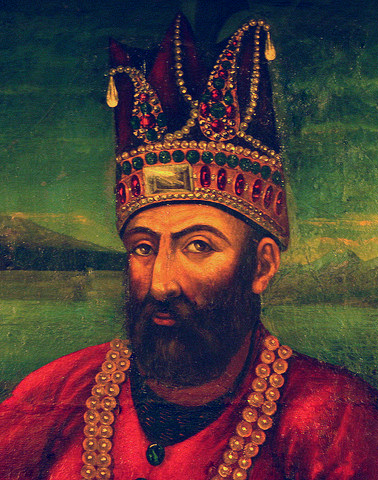Madmonarchs biography http://www.xs4all.nl/~monarchs/madmonarchs/nadir/nadir_bio.htm
Nâdir Châh: Citations en anglais
About Shah’s sack of Delhi, Tazrikha by Anand Ram Mukhlis. A history of Nâdir Shah’s invasion of India. In The History of India as Told by its own Historians. The Posthumous Papers of the Late Sir H. M. Elliot. John Dowson, ed. 1st ed. 1867. 2nd ed., Calcutta: Susil Gupta, 1956, vol. 22, pp. 74-98. https://www.infinityfoundation.com/mandala/h_es/h_es_tazrikha_frameset.htm
Tarikh-i Hindi by Rustam ‘Ali. In The History of India as Told by its own Historians. The Posthumous Papers of the Late Sir H. M. Elliot. John Dowson, ed. 1st ed. 1867. 2nd ed., Calcutta: Susil Gupta, 1956, vol. 22, pp. 37-67. https://www.infinityfoundation.com/mandala/h_es/h_es_tarikh-i5_frameset.htm
Source: Irvine, Later Mughals https://archive.org/stream/in.ernet.dli.2015.280772/2015.280772.Later-Mughals_djvu.txt
